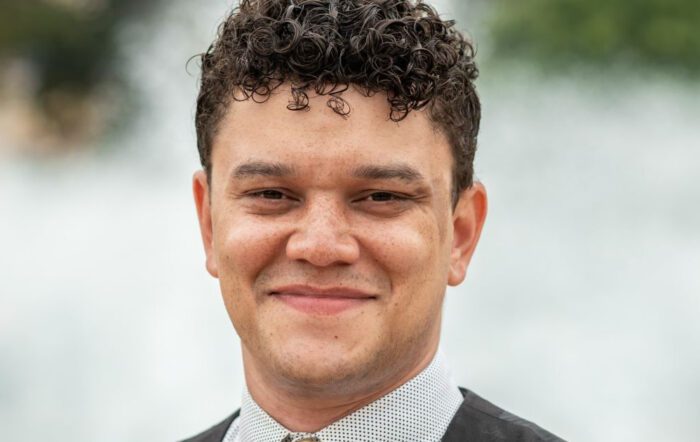We’re incredibly proud of the therapists in the NOCD network. While all of them are trained in delivering evidence-based treatment for obsessive-compulsive disorder (OCD), many have overcome OCD and other mental health issues themselves. We want you to get to know some of the clinicians who have dedicated their lives to helping people end the struggle.
“I’ve been told by a lot of clients that therapists don’t typically laugh and make jokes. I have to crack jokes when it’s appropriate—humor is one of those things that’s very much needed in therapy,” says Anthony Wilkins, M.A., a Registered Associate Marriage and Family Therapist at NOCD, the leading provider of OCD treatment.
Sometimes traumatic experiences make you turn to laughter for levity, to help you cope—and Wilkins has certainly gone through his share of trauma. At 14, his dad went back to prison and his paternal grandmother passed away.
“I had a really difficult time going from 8th to 9th grade. I got into therapy and group therapy both in and outside of school,” he says. “But through that experience, I developed an important tool—the ability to be more self-aware than most of my peers.” His therapist helped him recognize his own potential at a time when he didn’t think he had any.
Discovering his breakthrough
Later, as Wilkins entered his college graduate program to become a therapist, his father passed away. “And that made me realize there were so many emotions left untouched,” he says. “I had to go back to therapy and unpack my own trauma. That’s when my ‘click’ happened.” It made him more dedicated to following a mental health pathway towards his own career.
I had to go back to therapy and unpack my own trauma. That’s when my ‘click’ happened.
Wilkins refers to that click as the moment when you feel like everything is about to get worse, you’re teetering on the edge, and you have this breakthrough where you understand yourself better. And that breakthrough can help you get to the other side of what you’re going through.
In his case, Wilkins was able to learn when he was starting to get anxious, and use that as an opportunity to check in with himself and employ strategies to ease his anxiety so that he could move through those uncomfortable feelings—skills he still relies on when he works with therapy members today.
In an effort to deepen his skills, Wilkins was eager to go through NOCD’s rigorous training to learn how to treat OCD and related conditions—something that most traditional therapists know very little about. During his training at NOCD, he also learned how to provide exposure and response prevention (ERP) therapy, which is considered the gold-standard of care because it’s clinically proven to be highly effective when treating the majority of people with OCD.
This form of treatment involves gradual exposure to your fears and learning how to resist performing compulsions—all with the careful guidance of your therapist. Over time, by being able to sit with the fear feelings that arise, you rewire your brain so that your intrusive thoughts, images, and urges no longer trigger distress.
“I like how straightforward, accessible, and attainable ERP is at NOCD for members,” says Wilkins. “In training, we learn exactly what our clients go through from the assessment to the education and response prevention phase. ERP is experiential, but as therapists we focus on making the process as gentle and straightforward as possible.”
And that’s where his special gift of humor comes in—to help make ERP less uncomfortable and intense. Wilkins wants therapy to be something you kind of look forward to, because he’s ready to get into it.
“I describe ERP to members as something that’s kind of like the Shawshank Redemption.. We’ll be crawling through our own sh*t tunnel. But when we get out, things are completely different. You can be present with your thoughts without feeling like running away. You won’t feel afraid of your own shadow,” he says.
“I want to create a space for you”
When doing the work with clients and leaning into uncertainty, he says that he’s inspired by the work of legendary researcher and author Brené Brown, who said, “I love the idea of embracing your vulnerable side, experiencing uncertainty, and normalizing the feelings that come up.”
Ultimately, it’s his personalized approach that makes Wilkins an effective clinician that people are excited to work with—despite the challenges of treatment. “I’m a people person. I know that members like talking to me, which helps me create a safe space for them—especially as a man who is talking about emotions.”
“I want to empower everyone to ask for help, no matter who they are, or where they come from,” says Wilkins. “My clients tell me that my sense of humor is a relief, and that they like that I’m real–not robotic in my approach. ERP therapy is something AI can’t do. Being an OCD therapist requires human feeling and connection.”

